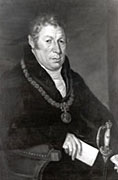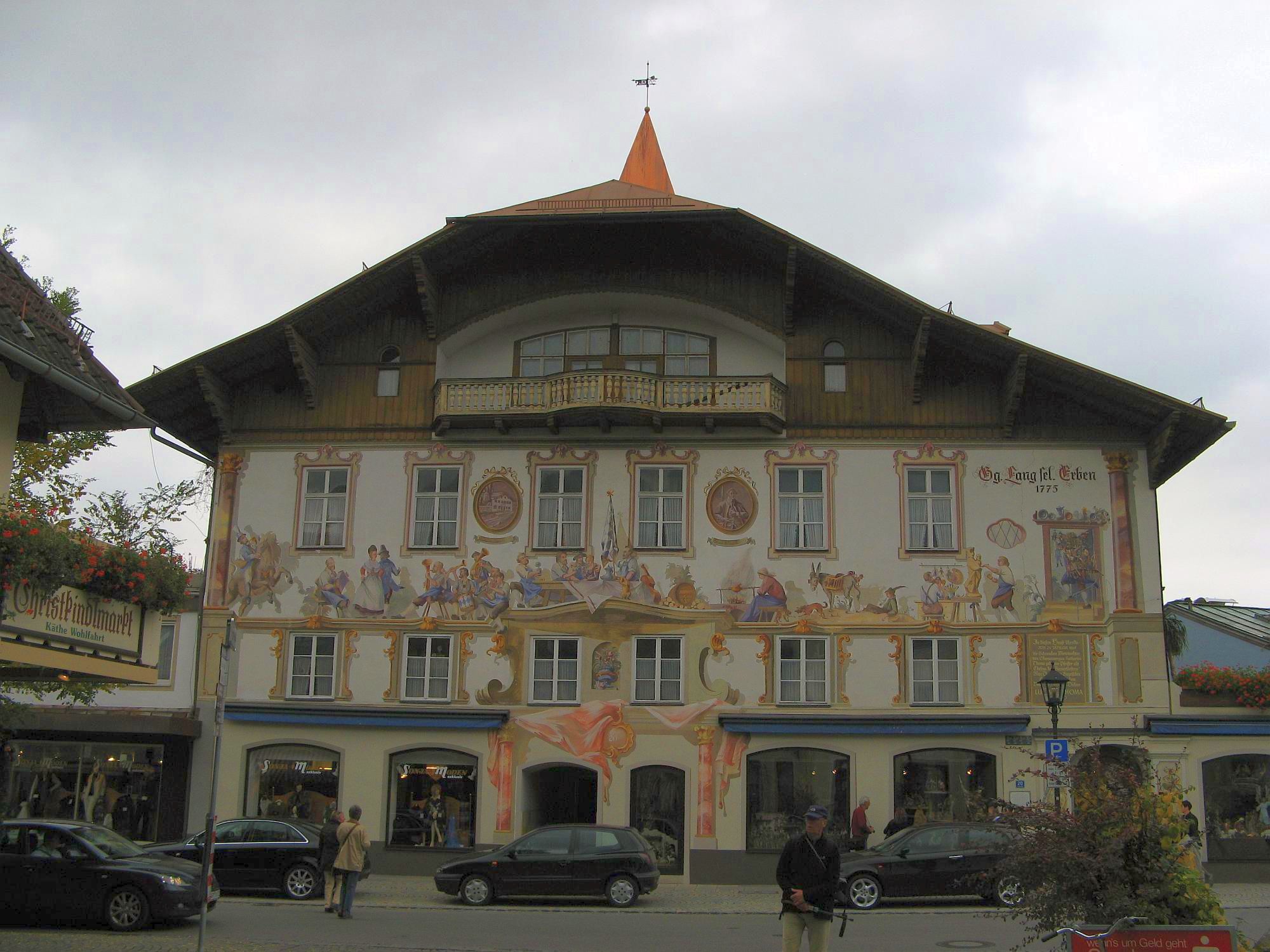|
Georg Kronawitter
Georg Kronawitter (21 April 1928 – 28 April 2016) was a German politician of the SPD. He was mayor of Munich from 1972 to 1978 and from 1984 to 1993. Early life and education Kronawitter was born in Oberthann, a part of Schweitenkirchen, in the district of Pfaffenhofen. He became an elementary school teacher in 1949, and earned his certification as a ''Diplom-Handelslehrer'' (business teacher) in 1956.Biography at the city's web site Career in politics Kronawitter joined the SPD in 1961 and was elected to the in 1966. In the 1972 local elections, he was elected Mayor of Munich with 55.9 percent of the votes,[...More Info...] [...Related Items...] OR: [Wikipedia] [Google] [Baidu] |
Hans-Jochen Vogel
Hans-Jochen Vogel (3 February 192626 July 2020) was a German lawyer and a politician for the Social Democratic Party (SPD). He served as Mayor of Munich from 1960 to 1972, winning the 1972 Summer Olympics for the city and Governing Mayor of West Berlin in 1981, the only German ever to lead two cities with a million+ inhabitants. He was Federal Minister of Regional Planning, Construction and Urban Development from 1972 to 1974, and Federal Minister of Justice from 1974 to 1981. He served as leader of the SPD in the Bundestag from 1983 to 1991, and as Leader of the Social Democratic Party from 1987 to 1991. In 1993, he co-founded the organisation ''Gegen Vergessen – Für Demokratie'' (''Against Oblivion – For Democracy''). He was a member of the National Ethics Council of Germany from its beginning in 2001. Early life and professional career Vogel was born in Göttingen in the Province of Hanover, Germany on 3 February 1926. He attended the in Göttingen, and from 1935 ... [...More Info...] [...Related Items...] OR: [Wikipedia] [Google] [Baidu] |
Christian Social Union Of Bavaria
The Christian Social Union in Bavaria (German language, German: , CSU) is a Christian democracy, Christian-democratic and Conservatism in Germany, conservative List of political parties in Germany, political party in Germany. Having a regionalism (politics), regionalist identity, the CSU operates only in Bavaria while its larger counterpart, the Christian Democratic Union of Germany, Christian Democratic Union (CDU), operates in the other fifteen states of Germany. It #Relationship with the CDU, differs from the CDU by being somewhat more conservative in social matters, following Catholic social teaching. The CSU is considered the ''de facto'' successor of the Weimar Republic, Weimar-era Catholic Bavarian People's Party. At the federal level, the CSU forms a common faction in the Bundestag with the CDU which is frequently referred to as the Union Faction (''die Unionsfraktion'') or simply CDU/CSU. The CSU has 45 seats in the Bundestag since the 2021 German federal election, 2021 ... [...More Info...] [...Related Items...] OR: [Wikipedia] [Google] [Baidu] |
2016 Deaths
This is a list of deaths of notable people, organised by year. New deaths articles are added to their respective month (e.g., Deaths in ) and then linked here. 2022 2021 2020 2019 2018 2017 2016 2015 2014 2013 2012 2011 2010 2009 2008 2007 2006 2005 2004 2003 2002 2001 2000 1999 1998 1997 1996 1995 1994 1993 1992 1991 1990 1989 1988 1987 See also * Lists of deaths by day The following pages, corresponding to the Gregorian calendar, list the historical events, births, deaths, and holidays and observances of the specified day of the year: Footnotes See also * Leap year * List of calendars * List of non-standard ... * Deaths by year {{DEFAULTSORT:deaths by year ... [...More Info...] [...Related Items...] OR: [Wikipedia] [Google] [Baidu] |
1928 Births
Nineteen or 19 may refer to: * 19 (number), the natural number following 18 and preceding 20 * one of the years 19 BC, AD 19, 1919, 2019 Films * ''19'' (film), a 2001 Japanese film * ''Nineteen'' (film), a 1987 science fiction film Music * 19 (band), a Japanese pop music duo Albums * ''19'' (Adele album), 2008 * ''19'', a 2003 album by Alsou * ''19'', a 2006 album by Evan Yo * ''19'', a 2018 album by MHD * ''19'', one half of the double album ''63/19'' by Kool A.D. * ''Number Nineteen'', a 1971 album by American jazz pianist Mal Waldron * ''XIX'' (EP), a 2019 EP by 1the9 Songs * "19" (song), a 1985 song by British musician Paul Hardcastle. * "Nineteen", a song by Bad4Good from the 1992 album '' Refugee'' * "Nineteen", a song by Karma to Burn from the 2001 album ''Almost Heathen''. * "Nineteen" (song), a 2007 song by American singer Billy Ray Cyrus. * "Nineteen", a song by Tegan and Sara from the 2007 album '' The Con''. * "XIX" (song), a 2014 song by Slipk ... [...More Info...] [...Related Items...] OR: [Wikipedia] [Google] [Baidu] |
Mayor Of Munich
This is a list of mayors of Munich since 1818. Kingdom of Bavaria Free State of Bavaria See also *Munich * Timeline of Munich {{Mayors of Munich Munich Munich ( ; german: München ; bar, Minga ) is the capital and most populous city of the German state of Bavaria. With a population of 1,558,395 inhabitants as of 31 July 2020, it is the third-largest city in Germany, after Berlin and Ha ... mayors ... [...More Info...] [...Related Items...] OR: [Wikipedia] [Google] [Baidu] |
Ludwig-Thoma Medal
Ludwig Thoma (; 21 January 1867 in Oberammergau – 26 August 1921 in Tegernsee) was a German author, publisher and editor, who gained popularity through his partially exaggerated description of everyday Bavarian life. After graduation from the Imperial Latin School in Landstuhl (today: Sickingen- Gymnasium Landstuhl), he first studied Forestry in Aschaffenburg, then Law until 1893 in Munich and Erlangen. Subsequently, he settled down as a lawyer, at first in Dachau, later in Munich. After 1899, he worked for the magazine ''Simplicissimus'' and published humorous narrations, comedies, novels and stories. Thoma satirized Bavarian rural and small-town life. His serious peasant novels ''Andreas Vöst'' (1905), ''Der Wittiber'' (1911), and ''Der Ruepp'' (1922), as well as his humorous collections ''Assessor Karlchen'' (1900), ''Lausbubengeschichten'' (''Tales of a Rascal'', 1904), and ''Tante Frieda'' (''Aunt Frieda'', 1906), are characterized by authenticity of regional language ... [...More Info...] [...Related Items...] OR: [Wikipedia] [Google] [Baidu] |
Frauenkirche (Munich)
, native_name = , native_name_lang = , image = Frauenkirche Munich - View from Peterskirche Tower2.jpg , pushpin map = , pushpin label position = , pushpin map alt = , pushpin mapsize = , coordinates = , osgraw = , osgridref = , location = Frauenplatz 12Munich, Bavaria , country = Germany , denomination = Roman Catholic , website = , founded date = , dedication = , dedicated date = , consecrated date = 1494 , status = Co-cathedral , functional status = Active , heritage designation = , designated date = , architect = Jörg von Halsbach , architectural type = Cathedral , style = GothicRenaissance (domes) , years built = preced. 12th centuryactual 1468–1488 , groundbreaking ... [...More Info...] [...Related Items...] OR: [Wikipedia] [Google] [Baidu] |
Erich Kiesl
The given name Eric, Erich, Erikk, Erik, Erick, or Eirik is derived from the Old Norse name ''Eiríkr'' (or ''Eríkr'' in Old East Norse due to monophthongization). The first element, ''ei-'' may be derived from the older Proto-Norse ''* aina(z)'', meaning "one, alone, unique", ''as in the form'' ''Æ∆inrikr'' explicitly, but it could also be from ''* aiwa(z)'' "everlasting, eternity", as in the Gothic form ''Euric''. The second element ''- ríkr'' stems either from Proto-Germanic ''* ríks'' "king, ruler" (cf. Gothic ''reiks'') or the therefrom derived ''* ríkijaz'' "kingly, powerful, rich, prince"; from the common Proto-Indo-European root * h₃rḗǵs. The name is thus usually taken to mean "sole ruler, autocrat" or "eternal ruler, ever powerful". ''Eric'' used in the sense of a proper noun meaning "one ruler" may be the origin of ''Eriksgata'', and if so it would have meant "one ruler's journey". The tour was the medieval Swedish king's journey, when newly elected, to s ... [...More Info...] [...Related Items...] OR: [Wikipedia] [Google] [Baidu] |
Landtag Of Bavaria
The Landtag of Bavaria, officially known in English as the Bavarian State Parliament, is the unicameral legislature of the German state of Bavaria. The parliament meets in the Maximilianeum in Munich. Elections to the Landtag are held every five years and have to be conducted on a Sunday or public holiday. The following elections have to be held no earlier than 59 months and no later than 62 months after the previous one, unless the Landtag is dissolved. The most recent elections to the Bavarian Landtag were held on 14 October 2018. Bavaria's current state government, formed after the 2018 election, is a coalition of the Christian Social Union (CSU) and the Free Voters (FW). Markus Söder has been Minister-President of Bavaria since March 2018, when he succeeded Horst Seehofer. History File:Medal Bavarian Constitution 1819, obv.jpg, Presentation medal of the ''Bayerische Ständeversammlung'' 1819 to King Maximilian I Joseph, on the first anniversary of the constitution ... [...More Info...] [...Related Items...] OR: [Wikipedia] [Google] [Baidu] |
Christian Ude
Christian Ude (born 26 October 1947) is a German politician who served as mayor of Munich from 1993 to 2014. He is a member of the German Social Democratic Party. Career Ude was born in Munich. From 1967 to 1969 he worked for the daily newspaper ''Süddeutsche Zeitung''. He studied legal science in Munich 1969-1977. From 1979 to 1990 he worked as a lawyer. He was elected as deputy mayor of Munich on 2 May 1990, two months after he was elected into the city council of Munich. On 12 September 1993, Ude was elected as lord mayor and successor of Georg Kronawitter. He was re-elected three times, on 13 June 1999 with 61.2 per cent of all votes, on 3 March 2002 with 64.5 per cent and on 2 March 2008 with 66.8 per cent. In August 2011 Christian Ude announced his intention to become the SPD's leading candidate for the upcoming Bavarian state election in 2013. Personal life In addition to his position as lord mayor, Ude is also a political cabaret artist. Ude has been married to Ed ... [...More Info...] [...Related Items...] OR: [Wikipedia] [Google] [Baidu] |
Pfaffenhofen (district)
Pfaffenhofen () is a ''Landkreis'' (district) in Bavaria, Germany. It is bounded by (from the south and clockwise) the districts of Eichstätt, Kelheim, Freising, Dachau and Neuburg-Schrobenhausen, and the city of Ingolstadt. History In early medieval times the region was partially property of the powerful monasteries of Ilmmünster and Münchsmünster, and partially divided into tiny secular states. One of those states was the county of Scheyern. The counts were ancestors of the Wittelsbach family, who in 1180 became rulers of Bavaria. From that time on the region was a part of Bavaria. The district of Pfaffenhofen was established in 1972 by merging several former districts. Geography The district is located in the Hallertau Plains between the Isar and Danube rivers. The Danube crosses the northernmost part of the district. Coat of arms The coat of arms displays: * the white and blue lozenges of Bavaria * a cross symbolising the monastery of Scheyern * a branch of hops Towns ... [...More Info...] [...Related Items...] OR: [Wikipedia] [Google] [Baidu] |



